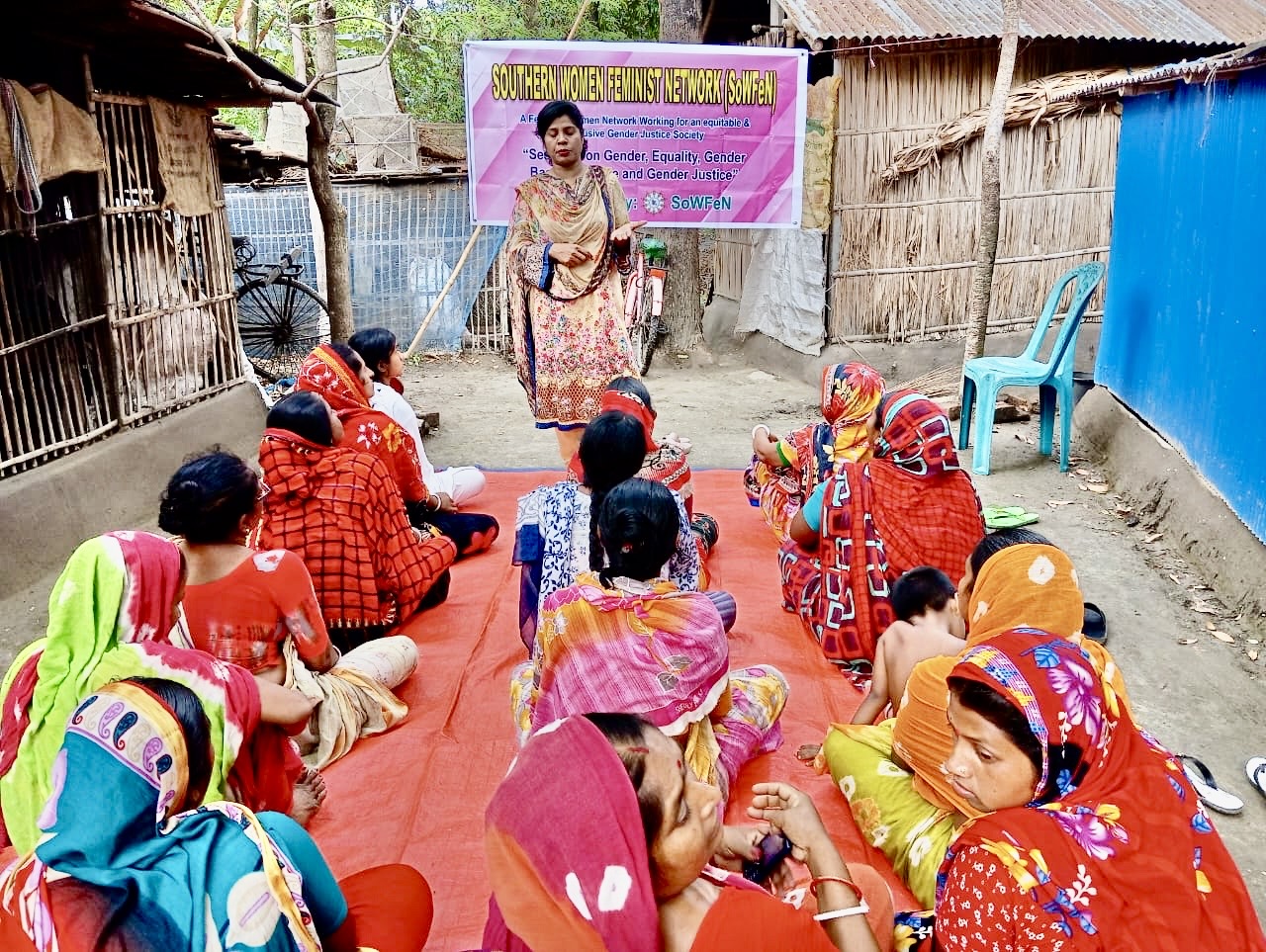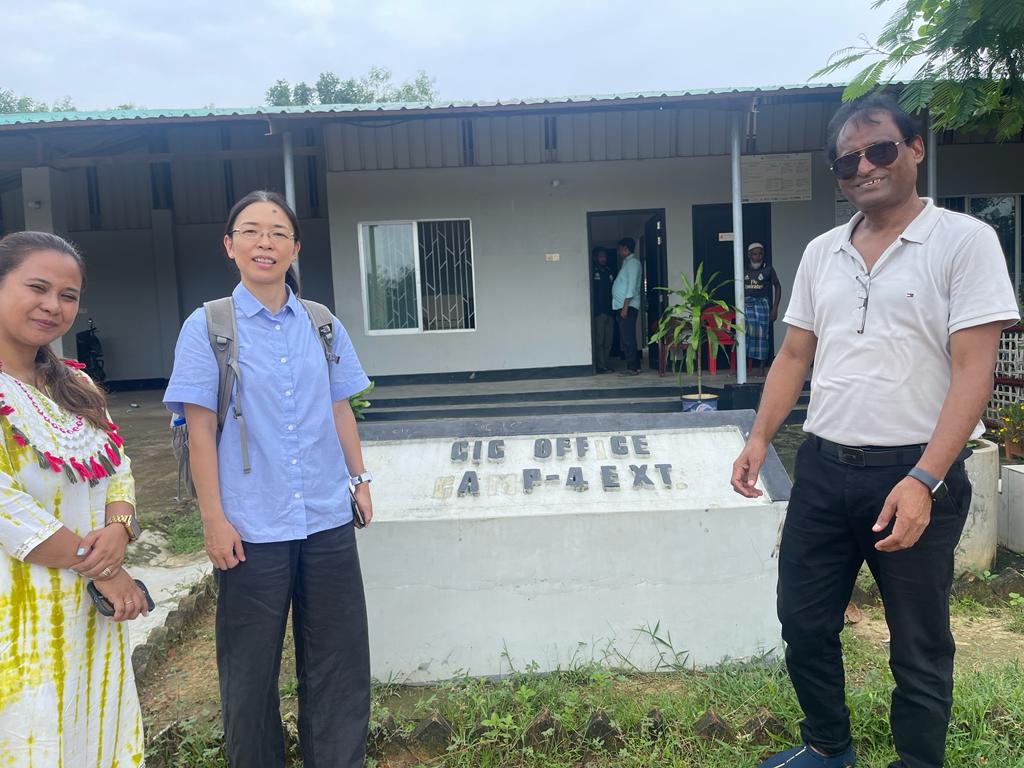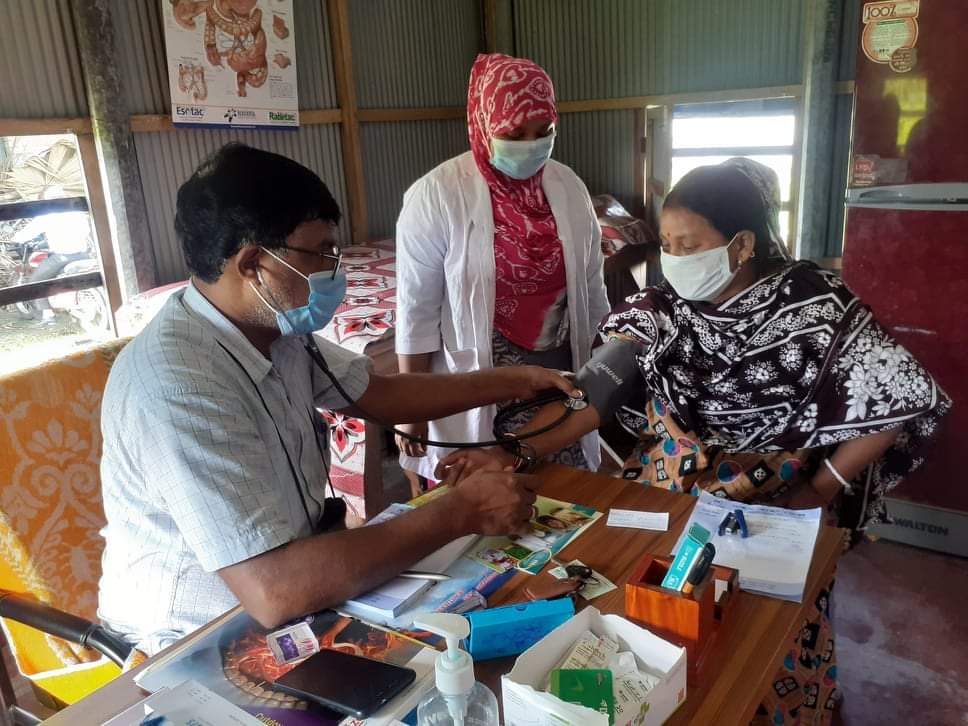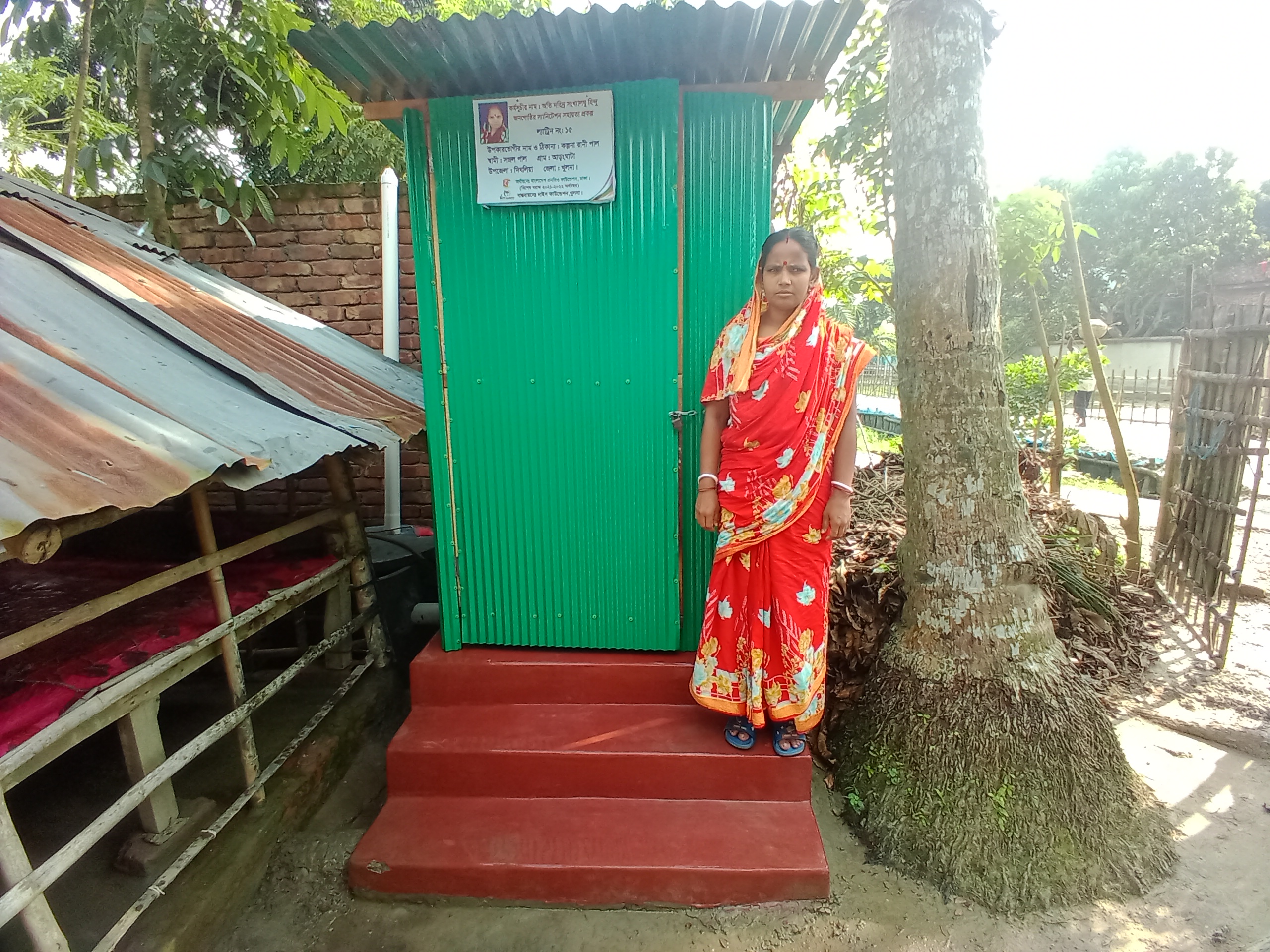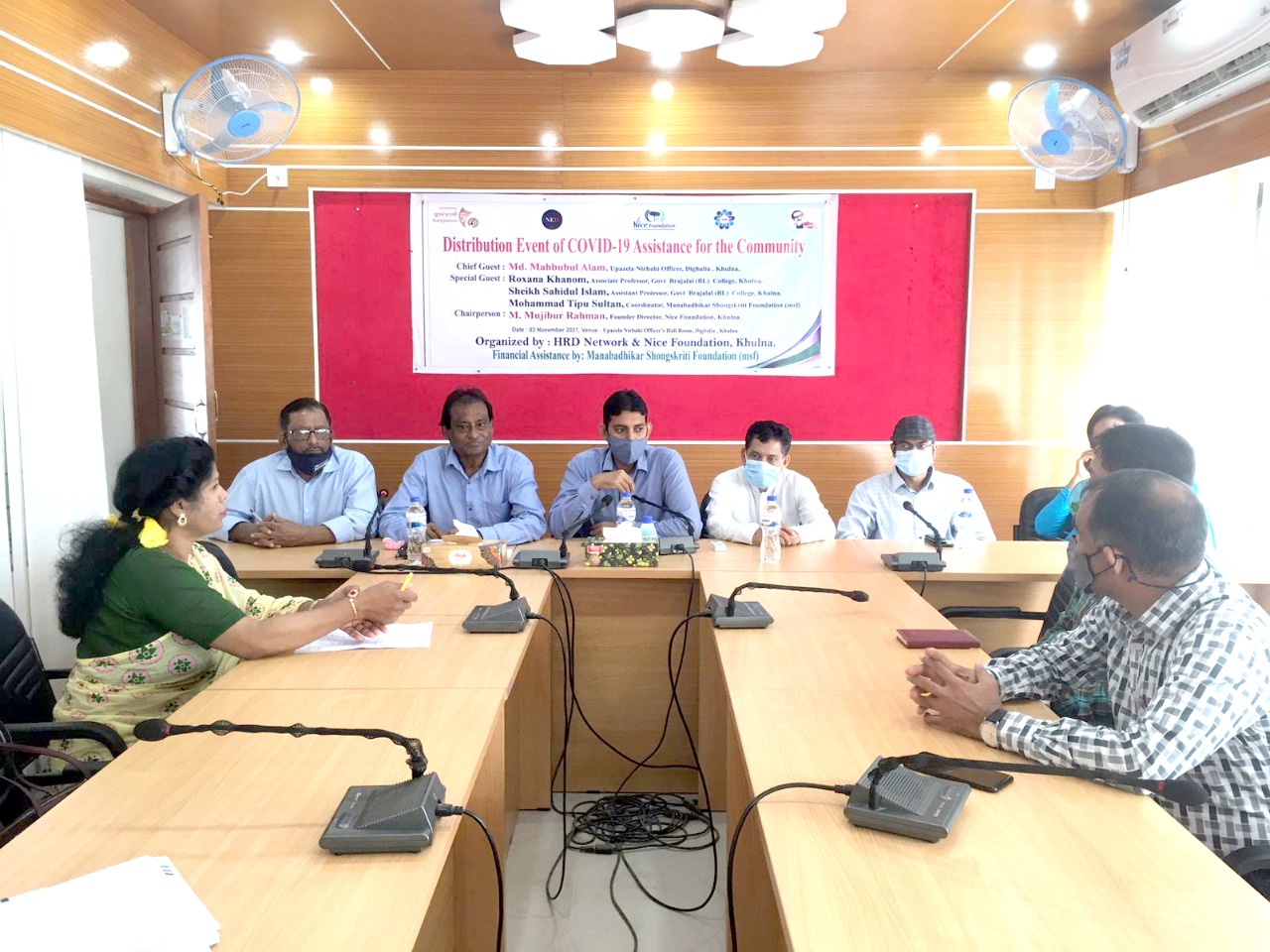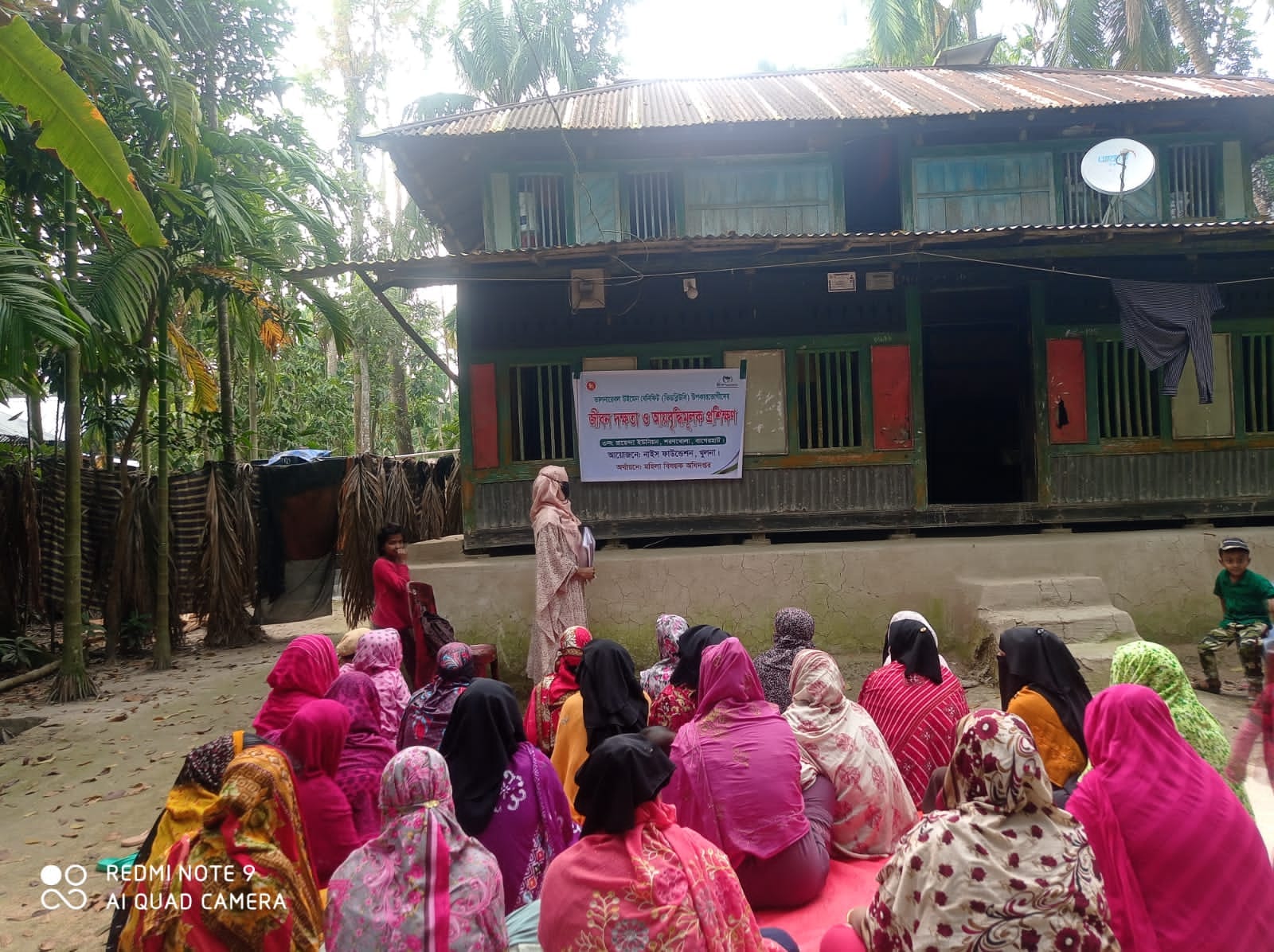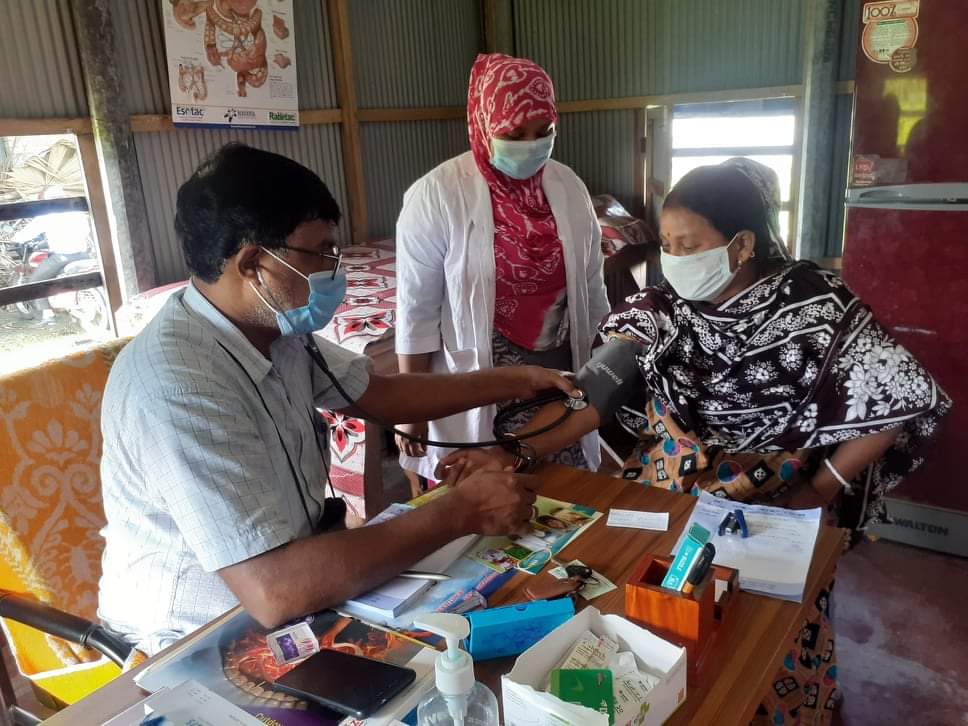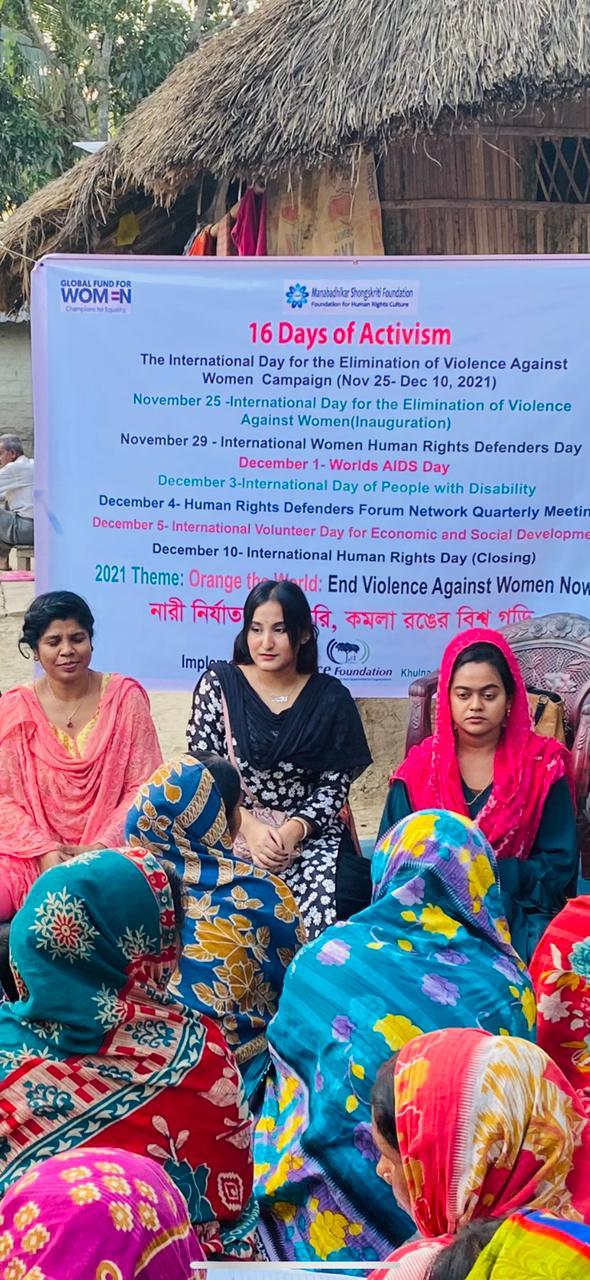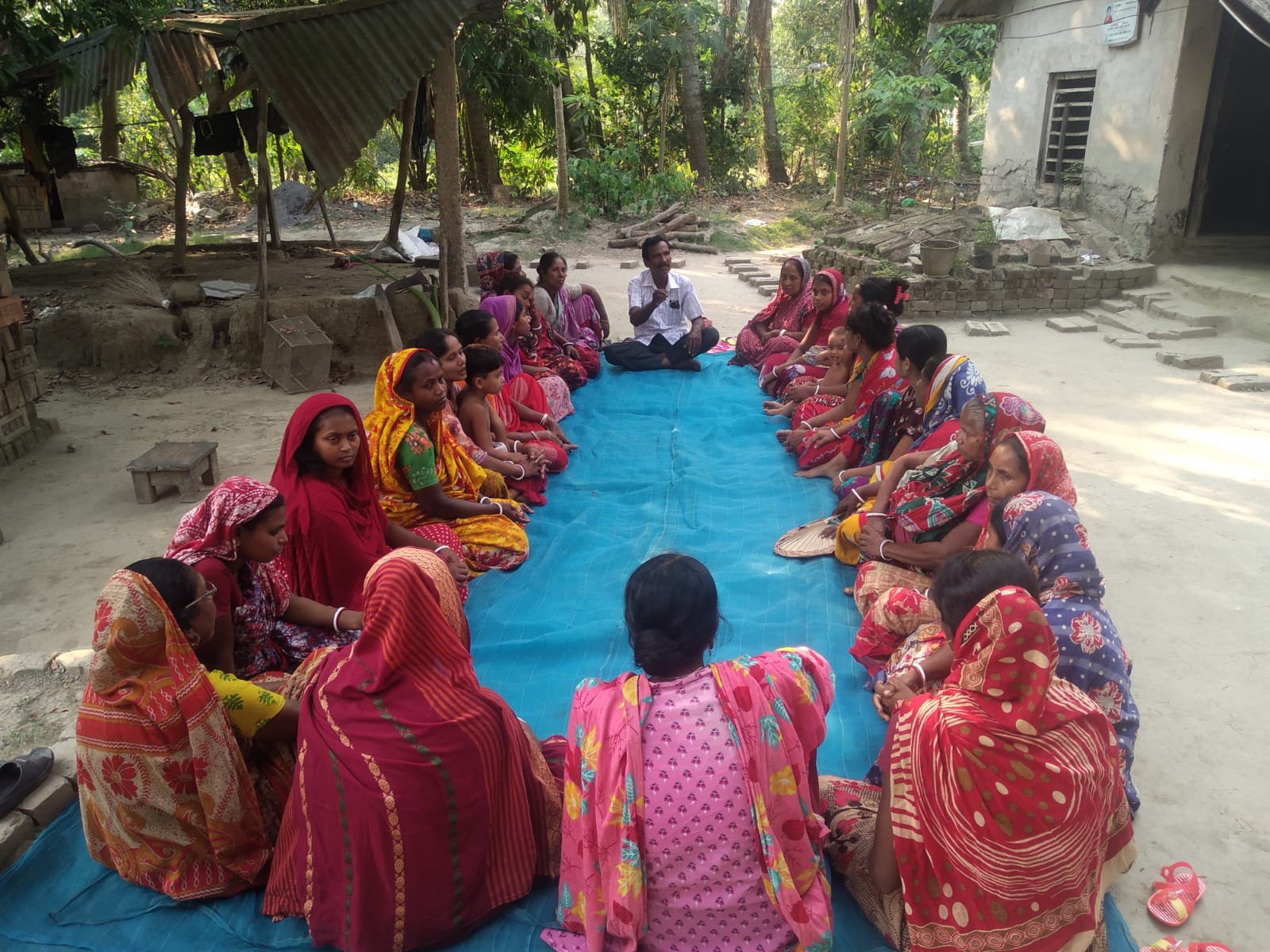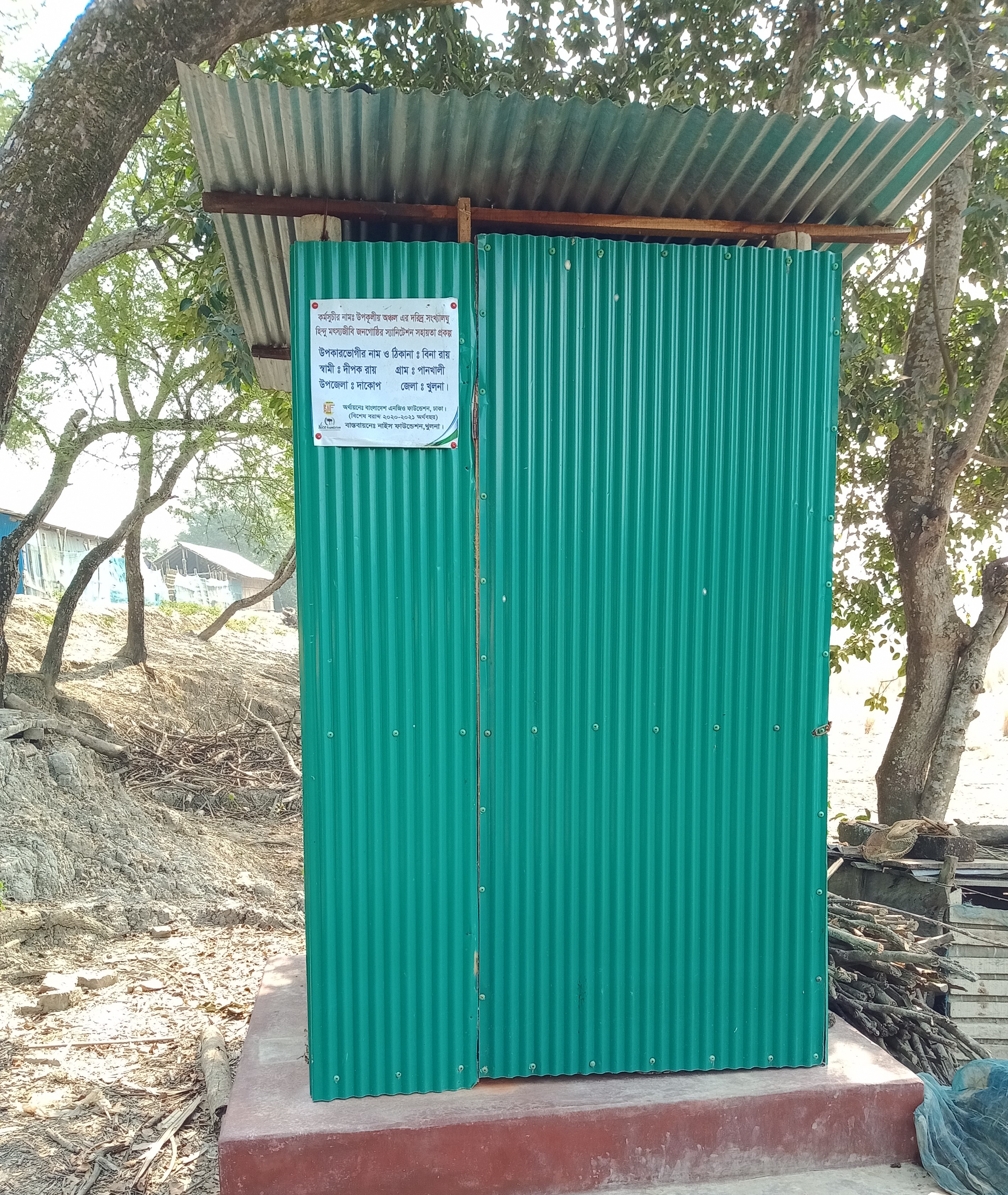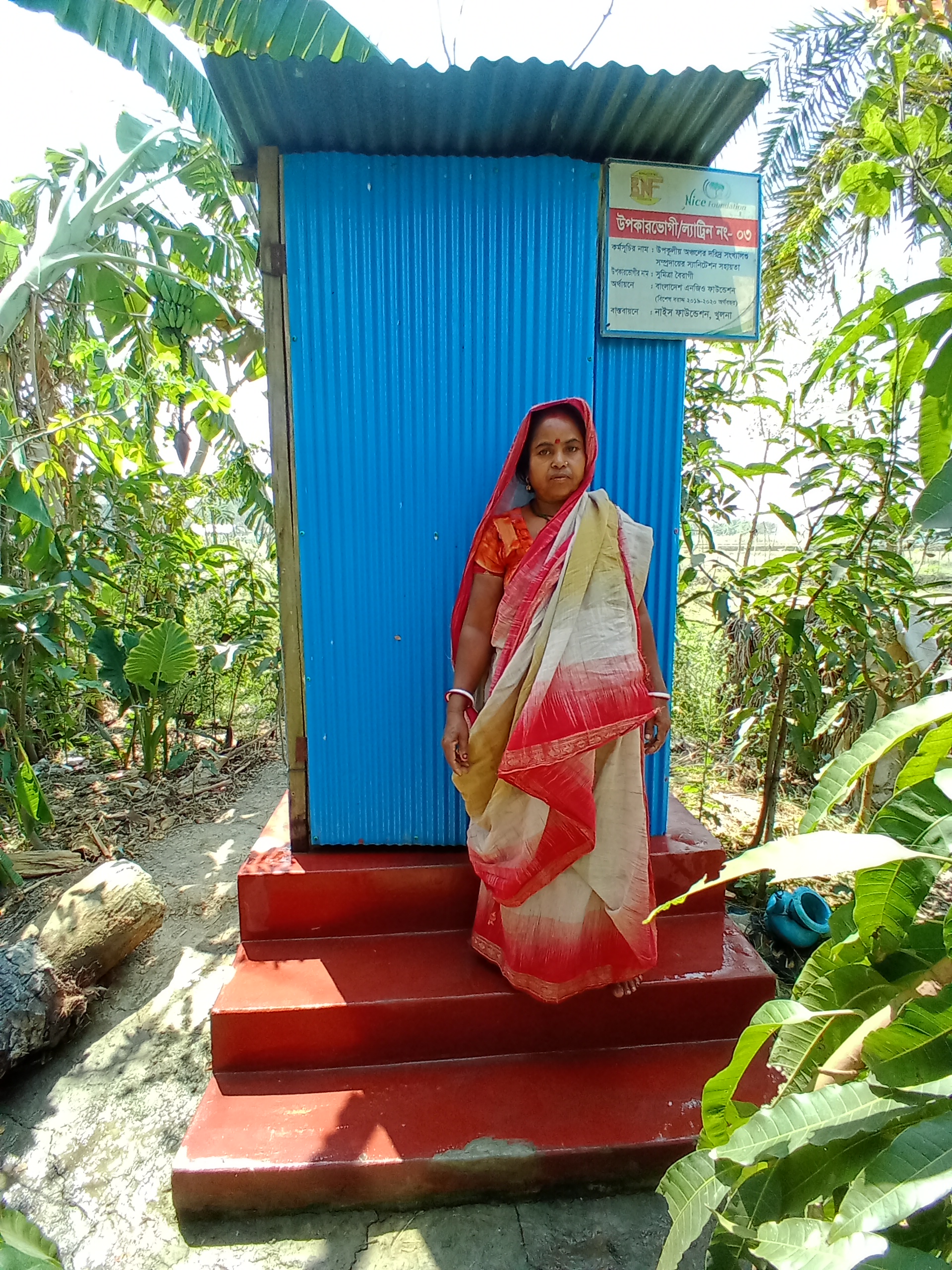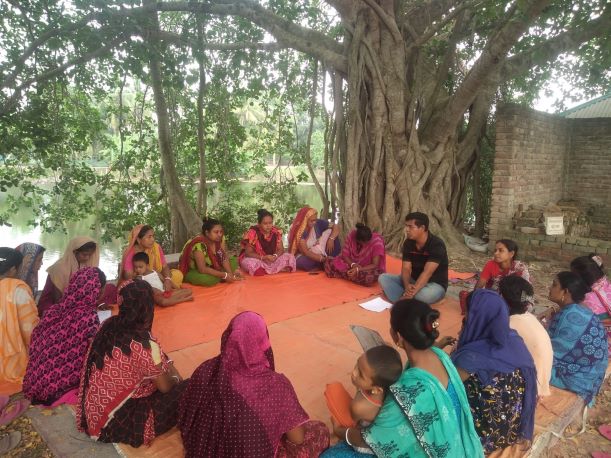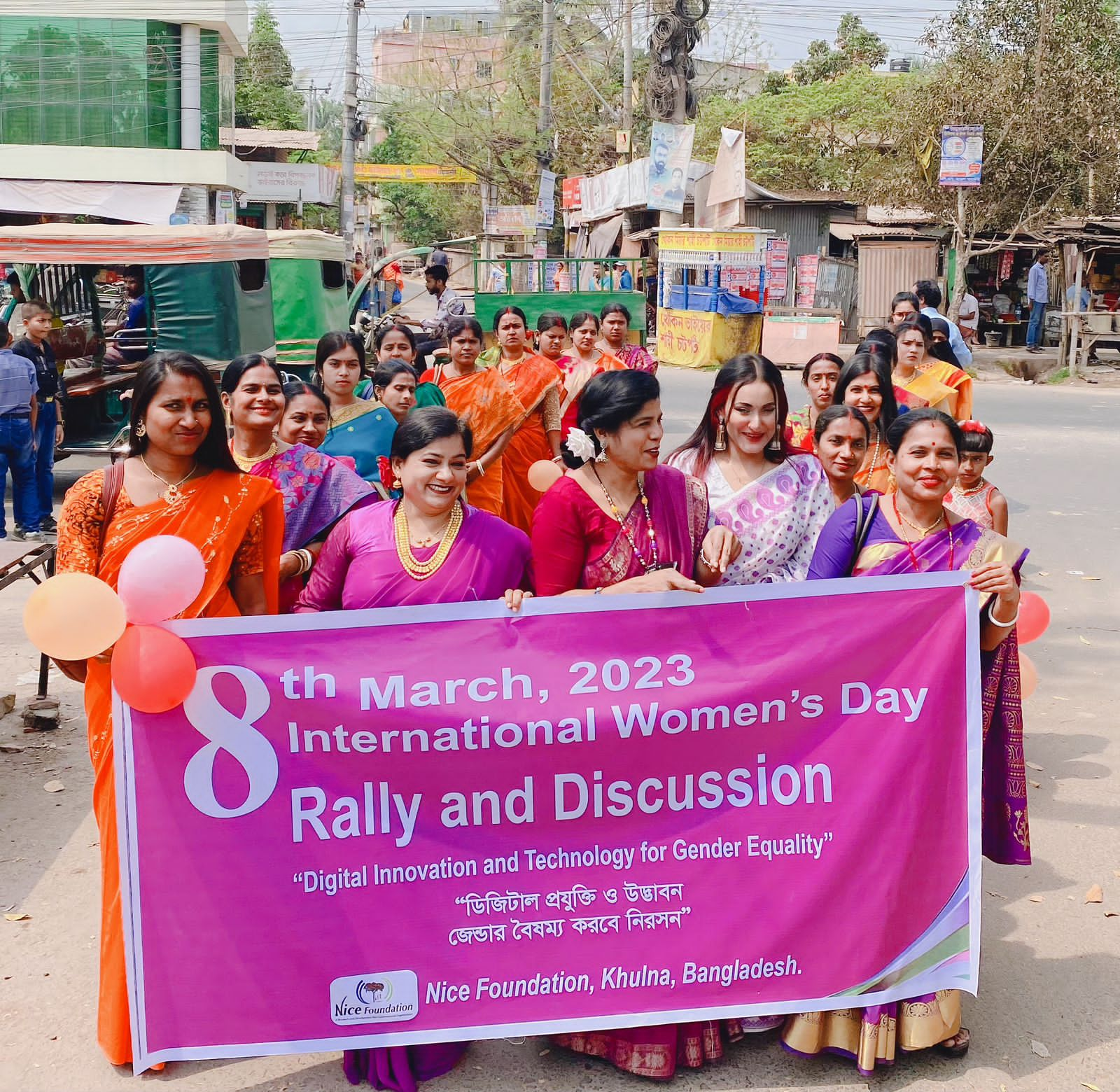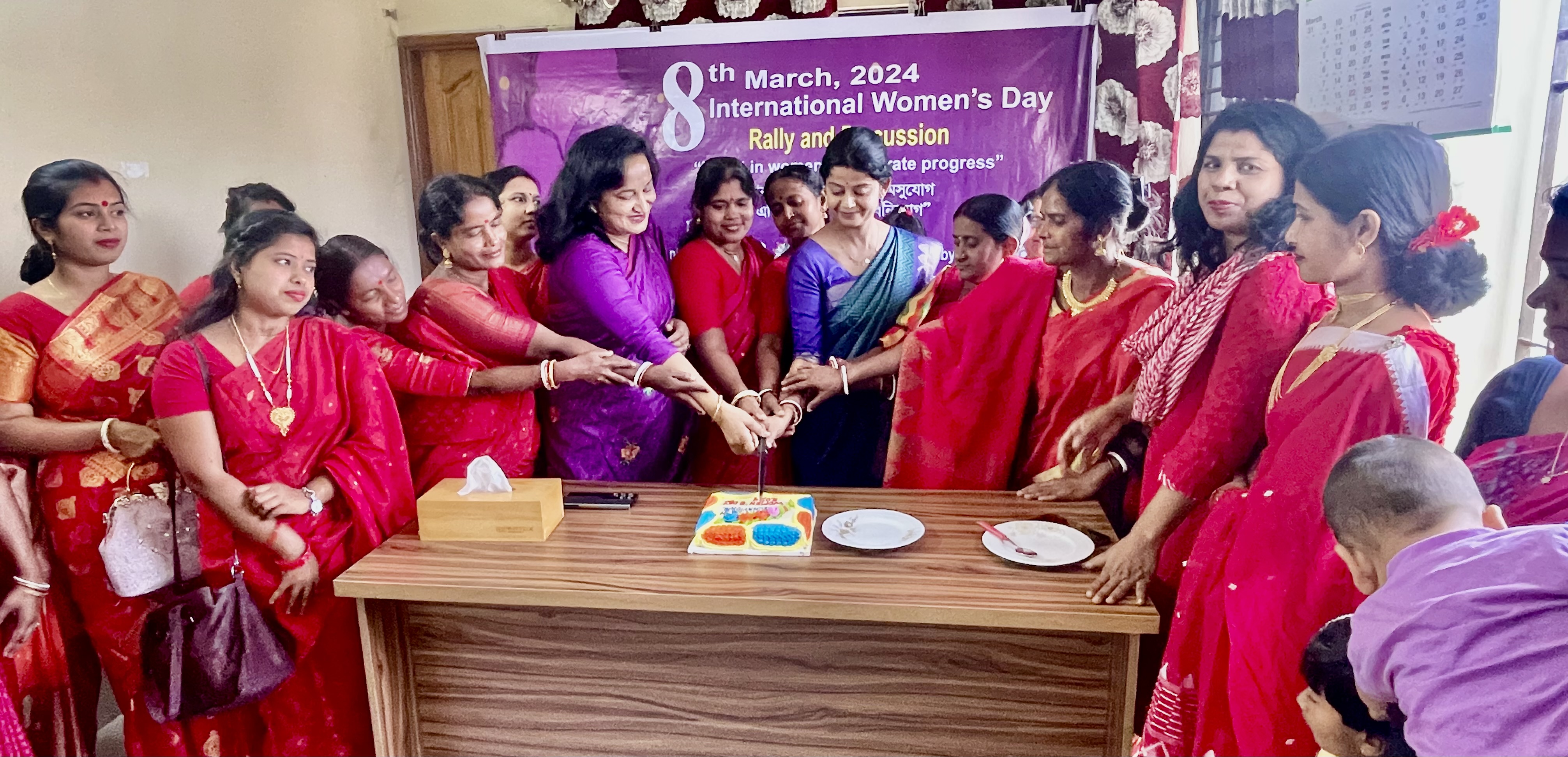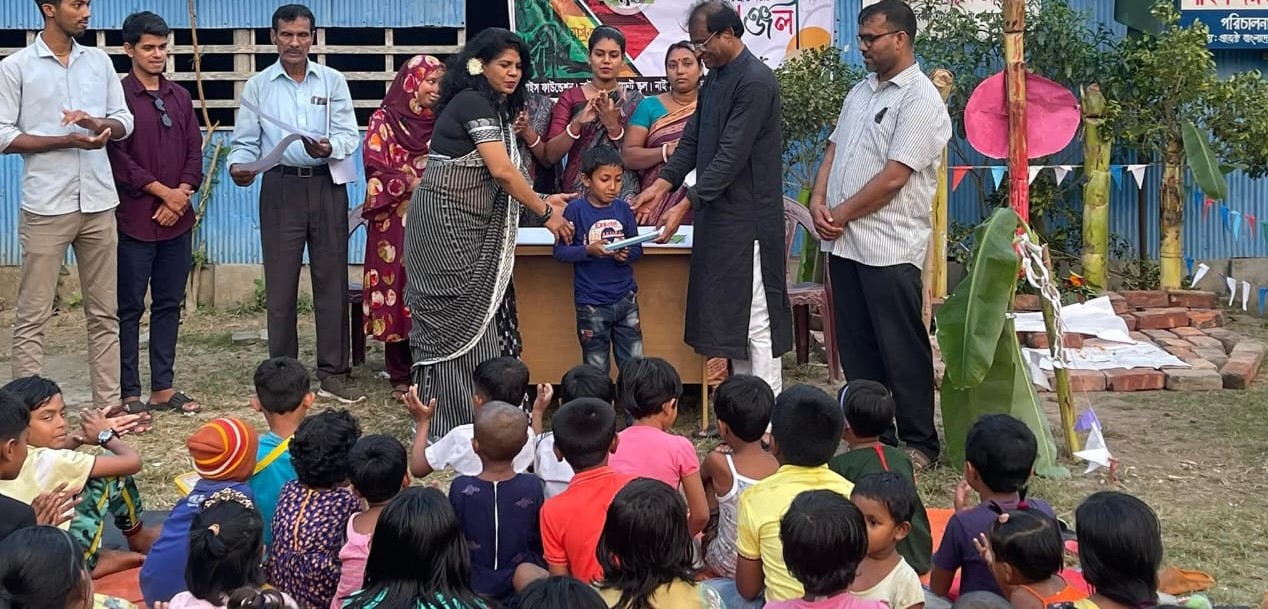
Project
Education Support to dalit Hindu and underprivileged Children for Schooling
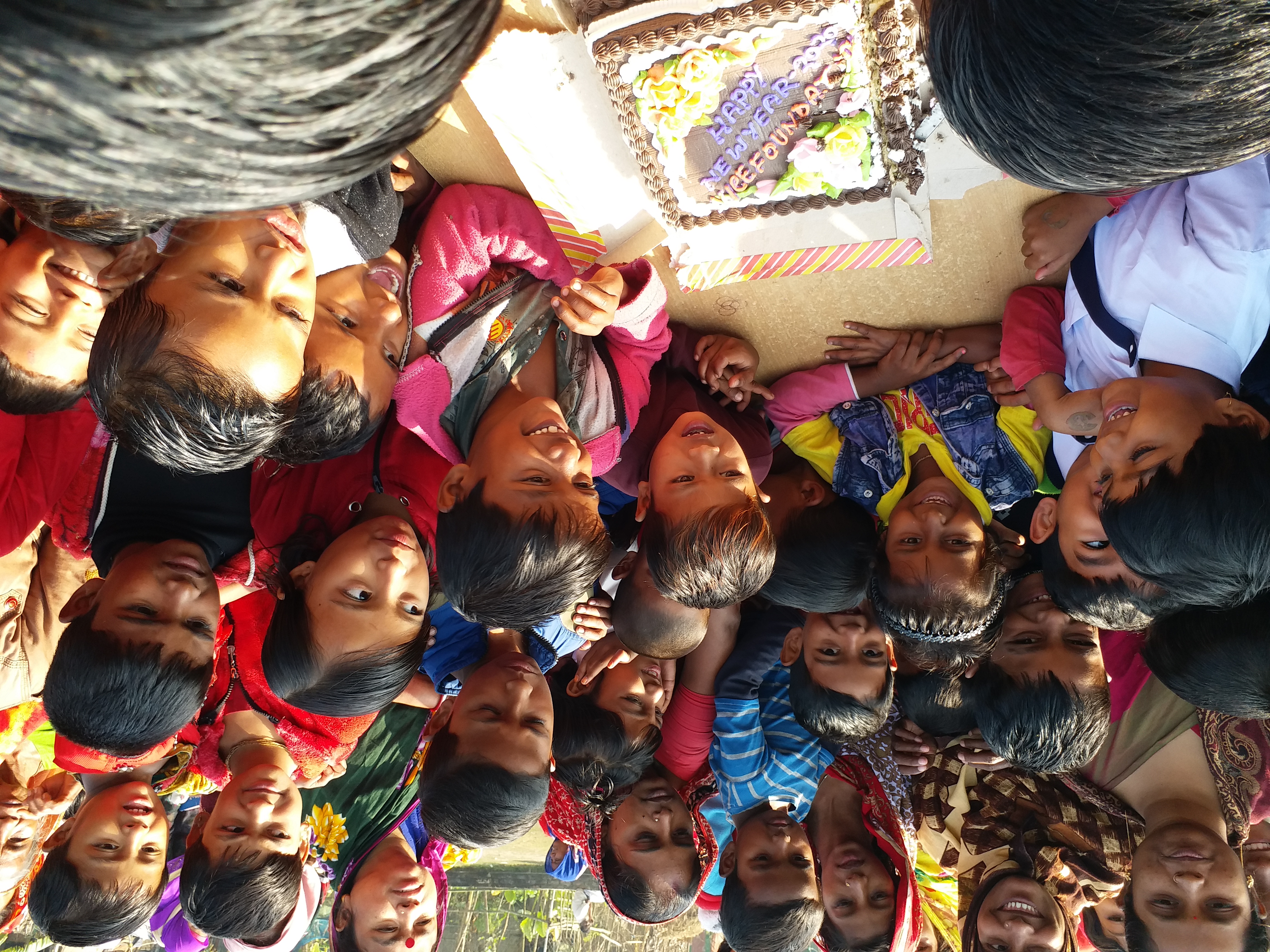
Despite considerable growth over the last decade, Bangladesh remains designated by the United Nations and World Bank as a ‘least developed country’. It is one of the most densely populated countries in the world; 30% of the 160 million population people officially live in extreme poverty., with income less thanUS$1.90 a day; 22% of children are illiterate, 30% know how to signature their names, 36% of the children have primary education. Most people live in rural areas, with many lacking food and shelter, health care, safe drinking water, sanitation, education and employment opportunities. They face frequent natural disasters though cyclones and flooding.
The situation is far worse for the marginalized ‘dalit’ communities of low caste Hindus in rural south-west Bangladesh. They face discrimination at all levels, ignored by authorities. Among the dalit people, the Kawra (pig-rearing) communities face the highest degree of deprivation, characterized by illiteracy, poor health, lack of political power, religious vulnerability, exploitation landlords or higher castes, early marriage and a dowry culture, limited lack of employment opportunities, poor living condition, lack of sanitation and the highest number of vulnerable women.
Recently, the government has sought to improve education provision, including the provision of ‘free’ schooling up to primary level. But Kawra communities – usually illiterate – do not allow their children to stay in education because of the expense, typically opting to send boys to income-generating activities and girls to an early marriage.
Considering to reduce the drop out and as part of mainstreaming this community the project has been supported by Dr. Ajmal Sobhan a USA citizenship holder initially for 6 months in 2011 and then he arranged donation from Project Bangladesh (PB) , USA for a period from January 2013 to December 2018. Due to shortage of PB they suggested us to continue the efforts further by managing other donors upto 2022 following the recommendation of an assessment commissioned by Dr. Meghnaguha Thakurata of Dhaka University associated with Research Initiatives Bangladesh as an Executive Director. The project has been continuing with a limited support by PB, USA for a certain period of 2019. Considering the needs of the community and to implement the recommendations of evaluation team we are proposing to you for support partly in 2019 and full from January 2020 to December 2022.
Rationale and Problem Analysis
All children have basic rights to access to health, education and a balanced diet. But for children from marginalized communities in Bangladesh, these rights are often violated due to poverty, lack of social consciousness and discrimination. Among the dalits in Bangladesh, the Kawra pig-rearing community is the most vulnerable and marginalized group in society. They are treated as ‘untouchable’ within the minority Hindu community and are generally hated by the majority Muslim community because they farm and eat pork. Kawra pig farmers typically have very limited market access and their pork is sold out at very low price. So many are giving up and instead getting jobs as day laborers, which of course is only seasonal.
With such economic pressures, many in the community have become the poorest of the poor. Children cannot continue their education due to lack of proper motivation and financial means. Increased dropout rates lead to more child labor and child marriages in this area. Most of the children cannot prepare their daily homework given by the formal educational institutions, because they don’t have an educated family member to guide them. Their families are unable to afford other educational costs including school uniform, bags, books, pencils and paper. Many suffer from malnutrition and consequential poor health.
This project will provide education-related support, supplementary education to children and gaming materials who studying at class One to Five. At the same time, they will be provided with basic health services and nutritious food. The nutrition feed will reduce malnutrition and the children will be attentive to the classes. From our experience, we have found that once a student completes their primary level with a creditable grade, they gain the self-motivation to continue secondary education which ultimately helps to change the living standards of their community.
Goal of the Project
To reduce drop-out rates at primary level by supporting Kawra children aged 5 to 12. This in turn will encourage families to maintain their education at a higher level and thereby reduce child labor and early marriage, and secure better health outcomes.
Objectives and Activities
Objective Activities
To enable Kawra children to attend regular formal education. Randomly selecting poor children from the Kawra (pig-rearing) community, studying in class one to five.
Preparing a family profile for each student.
Motivating children and their families regarding the importance of the education.
To minimize the drop-out rate at primary level in the project area.
Coaching those children 6 days in a week in school after formal schooling.
Supplying school uniforms, bag and education materials round to the selected children.
Monthly meetings with staff to monitor progress, enable planning, develop teaching techniques and deal with any problems.
Meetings with parents or guardians on how their children are progressing.
Meeting with formal educational institutions on the attendance of the children.
Monthly examinations conducted for all classes by the teachers to monitor performances and ensure schooling is tailored to individual students.
Monitoring the school every working day by the Project coordinator and twice in a month by the Nice Foundation Director to monitor performance of teachers and students.
To enhance the nutrition level of the Kawra children. Supplying nutritious foods to the children after coaching.
Providing the basic knowledge of nutrition to the children.
To provide basic health service to participating children and their families free of cost. A qualified doctor will see the children and poor people living surrounding area in a fixed day in a week.
Some basic medicines, including de-worming tablets, will be provided to the children.
Making the children aware of the importance of hygienic practice including sanitation, washing hand before meal etc.
To impart values to children to strengthen them for higher education
Arranging annual sports competition.
Arranging a study tours of historical places of interest.
Observing important national and International days with participating children.
Mid Term and Final Evaluation In order to assess the project impact a midterm evaluation will be conducted by an independent evaluator. As it is a four years project at the end of the project final evaluation will be conducted by an external Evaluator to see the changes and assess the overall impact of the project.
Outputs and inputs
Outputs Inputs
Every year 60 children are provided with nutritious food, better education and a better environment to grow up physically and mentally.
Every year 60 children are growing up in a good environment, with a disciplined life style. Creating a good teaching environment.
Providing nutrition and other supplies.
Securing utility services including water, electricity and hygienic sanitation.
Providing sports and cultural programmes.
Every year 60 children attend school regularly, with equal opportunity with other children.
100% children are promoted into next classes.
Provide free Books, paper, pens, pencils, etc.
Provide free school uniform.
Provide free school bags.
Provide free tutors/coaching 6 days in a week in the centre
Children as well as their family members also keeping in good health. Provide free Medical care by a qualified doctor.
Provide free medicines for poor children and community.
Monitoring, Supervision and Reporting
The Project Coordinator will collect and analyze data so that all components are consistently evaluated to measure effectiveness, efficiency, quality, usage, and acceptability in the activities, and identify problems, gaps and remedial actions. Overall supervision and evaluation will be undertaken by the Director of the Nice Foundation. Monitoring and reporting will be carried out monthly or quarterly, depending on the activity. All reports, including financial statements, will be prepared and submitted to the donors’ agency by the Director of Nice Foundation. And project completion report will be submitted to the donor after completion of the project.
Previous Experience
From the very beginning, the Nice Foundation has worked for destitute and marginalized people to develop their socio-economic condition, health and education, and thus affect their future. The Nice Foundation has completed several projects where health and education have been the main aim. Since 2011, with the support of Project Bangladesh USA, the Nice Foundation has been running a health and education development project in Bangladesh for destitute Kawra children in Digholia upazila (sub-district), Khulna district. The aim has also been to reduce drop-out rate at primary level which in turn leads to reduced child labor, reduced early marriage, and improved health outcomes. The project have achieved remarkable success, supporting 420 children, more than 90% of whom completed primary education and all of them still continuing their education. A total of 14 children (seven boys and seven girls) have qualified for higher level education. The project has also provided health services to 16,340 poor people including children. This project interventions with the recommendations of evaluation team will run upto December 2022.
Community Involvement and Gender Issues
The Nice Foundation always encourages all the stakeholders of the project to secure gender and human rights issues in all stages. Local community organizations and leaders will be involved in planning and recommending Kawra children for the project. Gender sensitivity will be an integral part in all components of the project. The project will assist a similar number of girls and boys.

